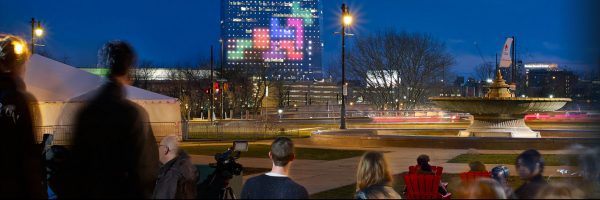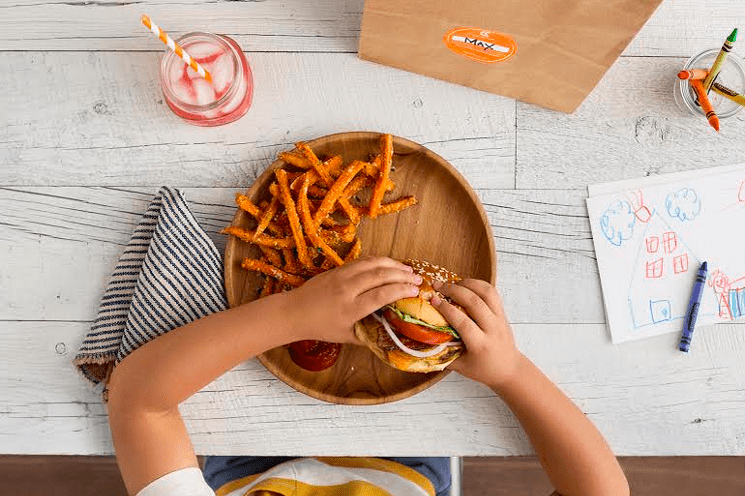Drexel Culinary Collaborations and First Place Finishes — Philly News

With so much news happening in Philly business schools, it’s understandable if you need a hand catching up. Here’s your Philly news brief.
Drexel EMBA Class Spurs Culinary Collaboration — LeBow News
Thanks to his Drexel LeBow College of Business EMBA class, chef and restaurateur Kevin Sbraga has found a way back into the kitchen. Sbraga, a chef with prior business experience in the Philadelphia area, came up with the idea for a one-day pop-up kitchen in a Business Problem Solving class taught by associate clinical professor of management Suresh Chandran.
According to a news story on the Drexel website:
“We were talking about innovation as a disrupter, and that made me start to think about how the real estate landscape is changing for retail as well as restaurants,” Sbraga says. “I reached out to a hospitality buddy of mine who has some experience in the tech field. I asked him, ‘How can we create a virtual restaurant? A restaurant experience without the brick and mortar,’ and his response was ‘delivery’.”
Sbraga was one of the first restaurateurs in the city to adopt the now-popular food delivery app Caviar, helping deliver the first batches of Nashville hot chicken to Philly for a special one-day event. “The Hot Chicken was far and away the best-selling dish from The Fat Ham’s menu on Caviar. It was widely regarded as some of the best hot chicken outside of Nashville, so featuring it was an easy choice,” a Caviar spokesperson said.

LeBow EMBA grad and chef Kevin Sbraga was one of the first in the city of Philadelphia to help introduce the now-popular food delivery app Caviar.
You can read more about Sbraga’s food and pop-up concept here.
Penn State Smeal MBAs place first in Fisher Invitational Big Ten+ MBA Case Competition — Penn State Smeal News
Four Penn State Smeal MBAs recently took first place in the Fisher Invitational Big Ten+ MBA Case Competition at Ohio State. The team of first-year students were coached by Nancy Mahon, clinical associate professor of business communication.
Teams had 24 hours to develop a comprehensive pitch outlining concrete recommendations to address the challenges facing Bob Evans restaurant chain. Competition judges included key Bob Evans senior leadership as well as executives from other corporations. The Smeal squad defeated teams from Illinois and Wisconsin in first round before beating second-place Purdue and third-place Michigan State in the finals.
“I’m extremely impressed with our team’s efforts and professionalism,” Mahon said. “I’m especially proud of our students’ representation of Smeal.”
You can read more about the recent Penn State Smeal event here.
Is It Possible to Change Bad Behavior – Permanently? – Knowledge@Wharton
The recently-created Behavior Change for Good Initiative course at The Wharton School, taught by celebrated UPenn professor Angela Duckworth and Wharton’s own Katherine Milkman, looks at the quality of daily living in a broad and curious way.
In the most recent Knowledge@Wharton podcast episode, the two discuss the program’s vast social experiment angles, asking how people can change bad or not-well-liked behavior on a permanent scale. This includes the launch of the StepUp program with fitness chain 24 Hour Fitness. “Duckworth and Milkman are hoping to recruit hundreds of thousands of current and new members of the chain to sign up for the program,” they explain “Those who do will become part of a large-scale tournament in which scientists have developed 57 different paths they hope will lead to positive behavior change.”
“We want to see which ideas truly yield the biggest changes in behavior, not just during the course of the program, which is 28 days, but also in the year following it.”
You can check out the most recent podcast episode here.
Top MBA Programs for Producing Founders: 2017-2018 Report

Recently, PitchBook released its latest 2017-2018 Top 50 Universities Report. The ranking focused on those universities that produced the “ultimate building blocks of the venture industry: founders.”
This ranking is vastly different from rankings of top schools for entrepreneurship by U.S. News & World Report, Princeton Review, and Entrepreneur Magazine, all of which focus on factors like peer assessment surveys, curriculum, and entrepreneurial study options. Instead, PitchBook looked at a single criterion: founders of companies who received venture capital (VC) funding between January 1, 2006, and August 18, 2017, and where they went to school.
The report provides a fairly detailed breakdown of top undergraduate programs, companies (by capital raised), MBA programs, female founders, unicorns (companies that have attained the coveted $1 billion evaluation), and more. This article will focus solely on the results that relate to MBA programs, including information on female founders and unicorns.
Top MBA Programs
For the 2017-18 academic year, the top 10 MBA programs to produce founders who received VC funding were ranked as follows:
- Harvard Business School (HBS): 1,203 entrepreneurs, 1,086 companies, and $28,495 million raised
- Stanford Graduate School of Business (GSB): 802 entrepreneurs, 716 companies, and $18,259 million raised
- University of Pennsylvania’s Wharton School: 666 entrepreneurs, 585 companies, and $16,001 million raised
- INSEAD: 455 entrepreneurs, 406 companies, and $7,795 million raised
- Northwestern’s Kellogg School of Management: 445 entrepreneurs, 417 companies, and $5,680 million raised
- Columbia Business School: 441 entrepreneurs, 410 companies, and $5,465 million raised
- MIT Sloan School of Management: 437 entrepreneurs, 384 companies, and $7,797 million raised
- University of Chicago Booth School of Business: 405 entrepreneurs, 368 companies, and $5,470 million raised
- University of California – Berkeley Haas School of Business: 344 entrepreneurs, 314 companies, and $5,191 million raised
- UCLA Anderson School of Management: 247 entrepreneurs, 232 companies, and $3,957 million raised
HBS stands out immediately for producing founders who receive VC funding. Harvard produced twice as many founders as its next closest competitor, and those founders pulled in $10M more in funding for their 1,000+ companies.
As for the reason behind Harvard’s success, there are multiple elements that contribute to its production of entrepreneurs. The school is home to the Arthur Rock Center for Entrepreneurship, which offers programs for budding entrepreneurs including curricular offerings (over a dozen courses), a New Venture Competition (which offers $300,000 in cash prizes), the Rock Accelerator, the Harvard Innovation Lab, and even a Loan Reduction program that supports graduating entrepreneurs with a one-time, need-based award of $10,000 to $20,000. HBS’s extensive alumni network also provides students with connections with managing directors, partners, and founders of top VC firms including Bain Capital Ventures, Apax Partners, and Accel Partners.
Another standout for the 2017-2018 year was INSEAD. The only non-U.S. MBA program to appear in the top 10, it also moved up a spot this year over last. INSEAD grew from 393 entrepreneurs, 348 companies, and $6,131 million in capital raised to 455, 406, and $7,794 million respectively.
INSEAD’s students are supported by the INSEAD Centre for Entrepreneurship (ICE), which was founded in 2003. The center offers MBA students a chance to participate in the INSEAD Venture Competition (IVC), Entrepreneurship Bootcamps, and the Entrepreneurship Teaching Innovation (ETI) Fund, which supports the development of the “Your First Hundred Days” elective for budding entrepreneurs.
Another MBA program of note is MIT Sloan School of Management, which was fourth in capital raised on this year’s PitchBook ranking. This could indicate more successful companies coming out of MIT or a higher percentage of VC funding available to Massachusetts’ graduates.
Some of the unique entrepreneurship opportunities available from other top programs include Stanford GSB’s Startup Garage, an intensive, hands-on project course for MBA students, as well as MIT Sloan’s Martin Trust Center for MIT Entrepreneurship, which includes an accelerator, coaching, and various events. Finally, the Penn Wharton Entrepreneurship Center offers resources, events, and courses for MBAs looking to explore, develop, launch, and scale a startup.
Top Female Founders & Unicorns
PitchBook also reviewed the top MBA programs for female founders. Once again, HBS and Stanford GSB ranked first and second, respectively, with 202 and 119 female founders. Columbia Business School ranked third with 77, Wharton ranked fourth with 71, and MIT came in at fifth with 60 female founders.
As for the unicorns, the top five MBA programs are similar to the previous lists.
- HBS: 22 entrepreneurs, 17 companies
- Stanford GSB: 14 entrepreneurs, 11 companies
- Wharton: 11 entrepreneurs, 8 companies
- INSEAD: 8 entrepreneurs, 7 companies
- MIT Sloan: 6 entrepreneurs, 6 companies
This article has been edited and republished with permissions from Clear Admit.
